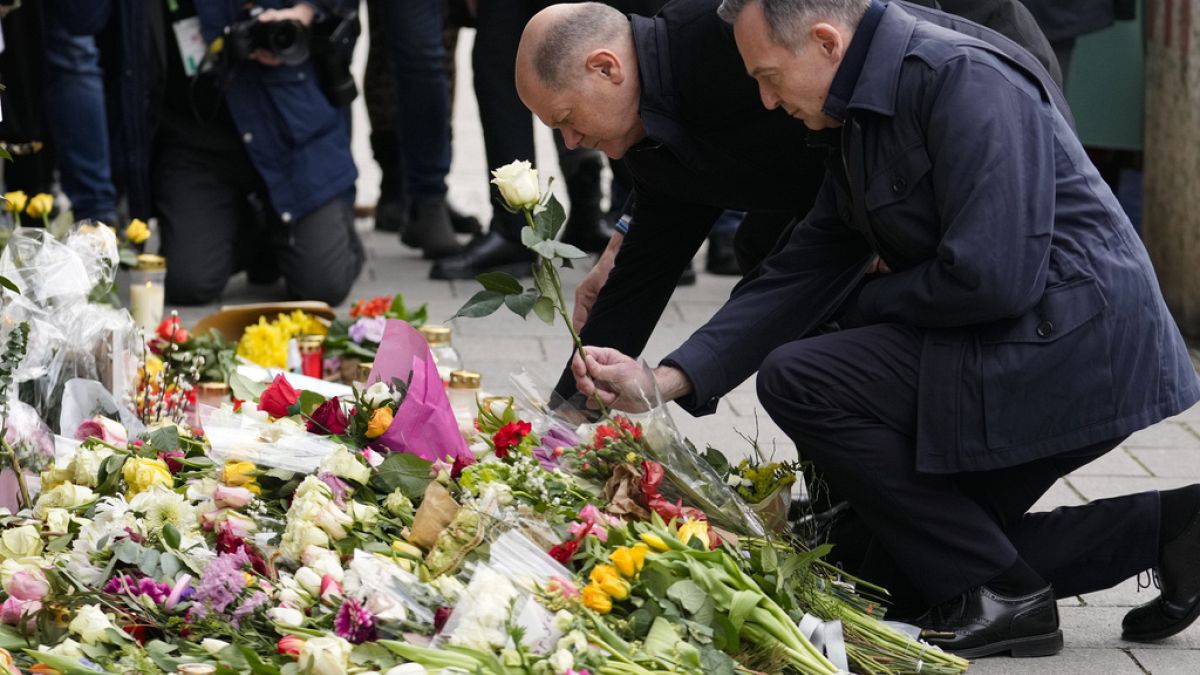Europe
Two people die from their injuries after Munich car ramming attack

A Tragic Car-Ramming Attack in Munich: Understanding the Event and Its Implications
On Thursday, a devastating car-ramming attack shook the heart of Munich, targeting a peaceful labor union demonstration organized by Ver.di, one of Germany’s largest labor unions. The incident, which left 39 people injured, has sent shockwaves across the nation, sparking widespread grief and concern. Among the victims were a young mother and her two-year-old daughter, who tragically succumbed to their injuries two days after the attack. The suspect, a 24-year-old Afghan man who arrived in Germany as an asylum-seeker, was apprehended immediately. Authorities have revealed that the attack appears to have been motivated by Islamic extremist ideologies, though no direct ties to a radical network have been found. This attack marks the fifth in a series of violent incidents involving immigrants over the past nine months, thrusting migration and security to the forefront of Germany’s upcoming federal election campaign.
The Attack and Its Aftermath: A Timeline of Tragedy
The car-ramming attack occurred during a labor union protest organized by Ver.di, a union representing public sector workers, in Munich. The driver, identified as a 24-year-old Afghan asylum-seeker, deliberately targeted the crowd, causing widespread panic and destruction. Emergency services were quickly summoned, and 39 injured individuals were rushed to hospitals for treatment. Among the victims were a 37-year-old mother and her two-year-old daughter, who sustained critical injuries. Tragically, both mother and child passed away on Saturday, as reported by Bavaria’s state criminal police office. The suspect was arrested at the scene, and initial investigations suggest that his actions were driven by extremist beliefs. However, prosecutors have emphasized that there is no evidence linking him to any organized radical group. The attack has left Munich in mourning, with residents and officials grappling with the scale of the tragedy.
The Suspect and His Motivations: Unraveling the Complexities
The suspect, a 24-year-old Afghan national, arrived in Germany as an asylum-seeker, seeking refuge from the turmoil in his home country. While his exact background and experiences in Germany remain under investigation, authorities have revealed that his actions were likely influenced by Islamic extremist ideologies. This has raised questions about the radicalization of individuals within Germany’s asylum-seeker communities and the challenges of identifying potential threats. It is important to note, however, that the suspect appears to have acted alone, without direct ties to a terrorist organization. This aspect of the case highlights the complexities of lone-wolf terrorism, where individuals may be radicalized through online propaganda or personal ideologies, making them harder to detect and prevent. The case underscores the need for a balanced approach to security, one that addresses both the risks of radicalization and the protection of vulnerable communities.
victims and Their Stories: Mourning the Loss of Innocent Lives
The attack has claimed the lives of a young mother and her two-year-old daughter, sending shockwaves of grief through the community. The 37-year-old mother, a Munich resident, and her child were among the 39 injured in the attack. Despite medical efforts, both succumbed to their injuries, leaving behind a family and community in mourning. Their story humanizes the tragedy, reminding us of the irreplaceable lives lost and the ripple effects of such violence on loved ones. The victims were not just statistics but individuals with hopes, dreams, and futures that were cruelly cut short. Their deaths serve as a poignant reminder of the human cost of violence and the importance of fostering compassion and unity in the face of tragedy. As Munich comes to terms with this loss, the community has rallied together to support the grieving family and the other victims of the attack.
The Broader Context: Migration, Security, and Germany’s Election
This attack occurs against the backdrop of a highly charged political climate in Germany, where migration and security have become central issues in the lead-up to the federal election on February 23. Over the past nine months, Germany has witnessed a series of violent incidents involving immigrants, which have fueled debates about immigration policies, integration efforts, and national security. While the vast majority of asylum-seekers in Germany are peaceful and law-abiding, high-profile cases of violence have intensified public concerns and political tensions. This attack has further polarized the debate, with some calling for stricter immigration controls and others advocating for a more compassionate approach to asylum-seekers. The incident has also raised questions about the effectiveness of Germany’s deradicalization programs and its ability to prevent lone-wolf attacks. As the election approaches, these issues will likely dominate the political discourse, shaping the direction of the country’s migration and security policies.
Moving Forward: Unity, Healing, and the Path Ahead
In the wake of this tragedy, Munich and the wider German community have come together to mourn the victims and condemn the attack. Candlelight vigils, memorial services, and messages of solidarity have flooded social media and public spaces, reflecting a collective commitment to unity and resilience. The attack has also sparked important conversations about how to balance security concerns with the protection of human rights and the integration of asylum-seekers. As Germany moves forward, it will be essential to approach these challenges with empathy, understanding, and a commitment to justice. By addressing the root causes of radicalization and ensuring that all members of society feel valued and included, Germany can work toward a future where such tragedies are prevented. The loss of life in Munich serves as a stark reminder of the fragility of peace and the importance of fostering a compassionate, inclusive society.


















